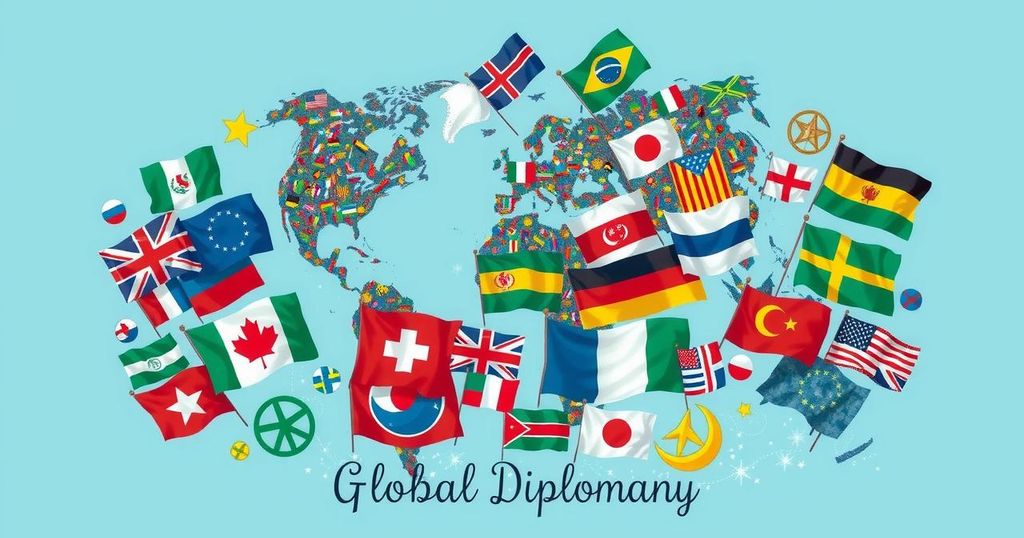Global news
AFRICA, AFRICAN UNION, ASHARQ AL - AWSAT, ASIA, CONFLICT RESOLUTION, DIPLOMACY, DONALD TRUMP, HOUSTON, INTERGOVERN, INTERGOVERNMENTAL AUTHORITY ON DEVELOPMENT, INTERNATIONAL CONFERENCE, MIGNON HOUSTON, NORTH AMERICA, PEACEKEEPING, RAPID SUPPORT FORCES, REGIONAL SECURITY, SAUDI ARABIA, SOVEREIGNTY, SUDAN, UNITED STATES, US, US STATE DEPARTMENT, WASHINGTON
Leila Ramsay
0 Comments
U.S. Collaborates with International Partners to Resolve Sudan Conflict
The U.S. is committed to ending the Sudan conflict, working with partners like Saudi Arabia for a ceasefire and a civilian-led government. The U.S. emphasizes humanitarian aid, accountability of warring factions, and regional cooperation to create a stable future for Sudanese citizens.
The United States is dedicated to resolving the conflict in Sudan, collaborating with various regional and international partners, including Saudi Arabia, to achieve a cessation of hostilities and facilitate a civilian-led government. Mignon Houston, deputy spokesperson for the US State Department, emphasized the urgency of ending the violence, highlighting it as Washington’s primary focus. The current administration under President Donald Trump strives to support the Sudanese populace in their quest for a stable and democratic future, avoiding any partiality in the conflict.
Houston noted, “We know the situation in Sudan is catastrophic. It’s the largest humanitarian crisis in the world,” underscoring the deplorable conditions faced by the Sudanese people. The U.S. is actively engaging through diplomatic avenues such as the African Union, the UN, and other regional actors to advocate for peace. The ultimate goal is to foster a unified Sudan that meets the aspirations of its citizens.
Washington maintains that foreign parties should contribute constructively to the crisis resolution, discouraging negative interference that might exacerbate the conflict. Houston warned that any involvement that does not promote peace may result in complicity in ongoing suffering for the Sudanese. Furthermore, the U.S. has applied sanctions against both the Sudanese Armed Forces and the paramilitary Rapid Support Forces to exert diplomatic pressure towards negotiations.
In addition to diplomatic actions, humanitarian assistance remains a priority. Houston reported that the U.S. is collaborating with international partners to provide pivotal support to Sudanese civilians and refugees. Humanitarian efforts delivered aid to 1.2 million individuals at risk of famine during early March, addressing immediate needs while emphasizing the necessity of halting violence to enable economic recovery.
The U.S. government holds both warring factions accountable for the continued destruction and regional instability in Sudan, advocating for a cooperative political process leading to a civilian government. Houston stated, “What is more important than anything else is focusing on the needs of the Sudanese people.” The urgency of prioritizing humanitarian assistance has led to a call for greater support from donor nations. The efforts of regional partners and calls for increased international cooperation remain crucial in navigating the complex landscape of this crisis.
In conclusion, the United States is steadfast in its commitment to ending the conflict in Sudan by collaborating with key partners and utilizing diplomatic channels. The focus includes transitioning to a civilian-led government while addressing the humanitarian crisis through significant aid initiatives. Accountability of both factions and encouragement for a constructive political process are crucial for lasting peace and stability in Sudan.
Original Source: www.arabnews.com




Post Comment